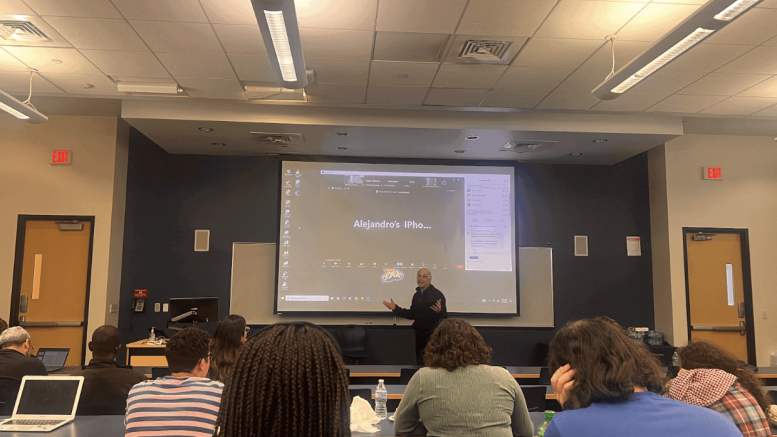Safi Ullah | Contributing Writer
Black Marxism is a theoretical framework within Marxist thought that examines the intersections of race, class, and capitalism, emphasizing Black people’s unique experiences and struggles within the capitalist system.
By emphasizing the racial aspects of capitalism and the distinctive experiences of Black people, Black Marxism challenges conventional Marxist interpretations and expands our knowledge of class conflict and social transformation.
In this event held on March 13th, professors Michael Burawoy from UC Berkley, Percy Hintzen from FIU, and Salim Vally from the University of Johannesburg, came to discuss the regional specificity of Black Marxism in the United States, Caribbean, and Southern Africa.
They highlight the integral relationship between capitalism, white supremacy, and the reality of black subjects, and emphasize the historical development of the Marxist-Leninist movement in Guyana. The speakers also stressed recognizing black women’s unique experiences and perspectives in social justice movements.
The speakers talked about the influence of historical figures that affected Black Marxism.
Professor Percy discussed the famous historian and activist Walter Rodney.
“Why is Europe so much more developed than Africa?” Percy asked before mentioning the findings of Walter Rodney. “The exploitation of African people and resources by colonial powers and capitalist systems, emphasizing the importance of understanding the specific experiences of Black people within global economic structures.”
“In the Caribbean, social status often correlates with skin color, with lighter-skinned individuals enjoying the cultural closeness and presumptions of privilege akin to whiteness, while darker-skinned individuals may internalize or manipulate these dynamics for advantage,” Percy emphasized the struggles black people face in the Caribbean.
“It emphasizes that Black Marxism in The Caribbean is unique due to this colonial history, and investing in radical practices challenges colonial and imperialist class orders. Additionally, it underscores that Marxism in the Caribbean confronts racial capitalism as a foundational principle, emphasizing the integral relationship between capitalism, white supremacy, and the reality of black subjects.”
“Neville Alexander, an influential figure in South Africa’s social and political landscape, endured imprisonment alongside Mandela and Sisulu, offering insightful analyses on racial capitalism and the interconnectedness of race and class, challenging conventional wisdom with his critique of the liberal view on racism.”
Focusing on the life of Neville Alexander, Profesor Salim mentioned how he “rejected the separation of racism from class struggle, emphasizing the interconnectedness of race and class in South Africa’s social reality.”
He further elaborated on the issue.
“Black people faced racialized dispossession and exploitation, restricted from land ownership and subjected to cheap labor roles under apartheid’s racial capitalism, while liberation movements like the ANC/SACP alliance fought against racial domination and class oppression, with figures like Neville Alexander actively engaged in conceptualizing these intertwined struggles.”
He commented on the issues faced by the minorities.
“W.E.B. Du Bois evolved from a pioneering scholar to a political activist, embracing Marxist analysis in his quest for economic justice. His seminal works, like ‘Black Reconstruction,’ reveal the intersections of white supremacy and capitalism, influenced by his international experiences and ideals of Bolshevik equality. Despite facing persecution for his communist sympathies, Du Bois remained committed to challenging oppression.” said Burawoy.
“W.E.B. Du Bois faced opposition and persecution for embracing Marxism, aligning with China and the Soviet Union before settling in Ghana. His pivotal role in the Pan-African movement highlights his commitment to anti-colonial and anti-imperialist struggles, reflecting the diversity of black Marxist thought.”
“W.E.B. Du Bois’s outstanding dedication to black Marxism was demonstrated by his leadership in the Pan-African movement, which resonated in anti-colonial battles around the world. His steadfast commitment endured despite many manifestations until his passing in Ghana in 1970, creating a long-lasting legacy of social justice activism,” Burawoy said.
“We have three remarkable stories here—those of Walter Rodney, Neville Alexander, and W.E.B. Du Bois—each representing vital traditions. It’s crucial to explore the connections between them, piecing together their narratives to create a cohesive understanding.”


Be the first to comment on "Panel reflects on implications and history of Black Marxism"